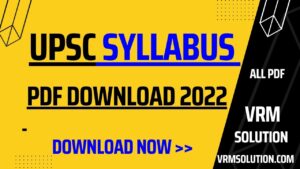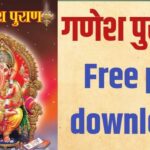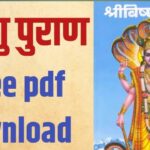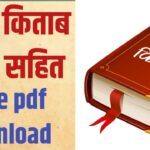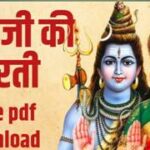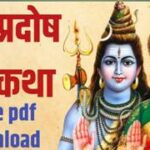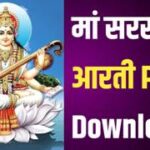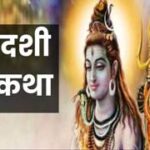UPSC Syllabus Pdf Download 2022 : यूपीएससी सिलेबस पीडीएफ पेज में नीचे दिए गए सीधे लिंक से मुफ्त डाउनलोड करें। UPSC Syllabus Pdf Download 2022
UPSC Syllabus Pdf Download 2022
| UPSC Syllabus Pdf Download 2022 : Overview | |
| PDF Name | UPSC Syllabus |
| PDF Size | 1.19 MB |
| No. of Pages | 125 pages |
| PDF Category | Education & Jobs |
| UPSC Syllabus Pdf Download 2022 | Download |
UPSC Syllabus Pdf Download 2022
Paper II-(200 marks) Duration : Two hours
Comprehension;
Interpersonal skills including communication skills;
Logical reasoning and analytical ability;
Decision making and problem solving;
General mental ability;
Basic numeracy (numbers and their relations, orders of magnitude, etc.) (Class X level), Data
interpretation (charts, graphs, tables, data sufficiency etc. — Class X level);
Note 1 : Paper-II of the Civil Services (Preliminary) Examination will be a qualifying paper with
minimum qualifying marks fixed at 33%.
Note 2 : The questions will be of multiple choice, objective type.
Note 3 : It is mandatory for the candidate to appear in both the Papers of Civil Services (Prelim)
Examination for the purpose of evaluation. Therefore a candidate will be disqualified in case he/she does
not appear in both the papers of Civil Services (Prelim) Examination.
Part B—Main Examination
The main Examination is intended to assess the overall intellectual traits and depth of understanding
of candidates rather than merely the range of their information and memory.
The nature and standard of questions in the General Studies papers (Paper II to Paper V) will be such
that a well-educated person will be able to answer them without any specialized study. The questions will
be such as to test a candidate’s general awareness of a variety of subjects, which will have relevance for a
career in Civil Services. The questions are likely to test the candidate’s basic understanding of all relevant
issues, and ability to analyze, and take a view on conflicting socio-economic goals, objectives and demands.
The candidates must give relevant, meaningful and succinct answers.
The scope of the syllabus for optional subject papers (Paper VI and Paper VII) for the examination is
broadly of the honours degree 1evel i.e. a level higher than the bachelors’ degree and lower than the masters’
degree. In the case of Engineering, Medical Science and law, the level corresponds to the bachelors’ degree.
Syllabi of the papers included in the scheme of Civil Services (Main) Examination are given as follows :—
QUALIFYING PAPERS ON INDIAN LANGUAGES AND ENGLISH
The aim of the paper is to test the candidates’ ability to read and understand serious discursive prose,
32
Government strives to have a workforce which reflects gender balance and women candidates are encouraged to apply.
and to express ideas clearly and correctly, in English and Indian language concerned.
The pattern of questions would be broadly as follows :
(i) Comprehension of given passages.
(ii) Precis Writing.
(iii) Usage and Vocabulary.
(iv) Short Essays.
Indian Languages :—
(i) comprehension of given passages.
(ii) Precis Writing.
(iii) Usage and Vocabulary.
(iv) Short Essays.
(v) Translation from English to the Indian Language and vice-versa.
Note 1 : The papers on Indian Languages and English will be of Matriculation or equivalent standard and
will be of qualifying nature only. The marks obtained in these papers will not be counted for ranking.
Note 2 : The candidates will have to answer the English and Indian Languages papers in English and the
respective Indian language (except where translation is involved).
PAPER-I
Essay: Candidates may be required to write essays on multiple topics. They will be expected to keep closely
to the subject of the essay to arrange their ideas in orderly fashion, and to write concisely. Credit will be
given for effective and exact expression.
PAPER-II
General Studies-I: Indian Heritage and Culture, History and Geography of the World and Society.
Indian culture will cover the salient aspects of Art Forms, literature and Architecture from ancient to
modern times.
Modern Indian history from about the middle of the eighteenth century until the present- significant
events, personalities, issues.
The Freedom Struggle — its various stages and important contributors/contributions from different
parts of the country.
Post-independence consolidation and reorganization within the country.
History of the world will include events from 18th century such as industrial revolution, world wars,
redrawal of national boundaries, colonization, decolonization, political philosophies like communism,
capitalism, socialism etc.— their forms and effect on the society.
Salient features of Indian Society, Diversity of India.
Role of women and women’s organization, population and associated issues, poverty and
developmental issues, urbanization, their problems and their remedies.
Effects of globalization on Indian society.
